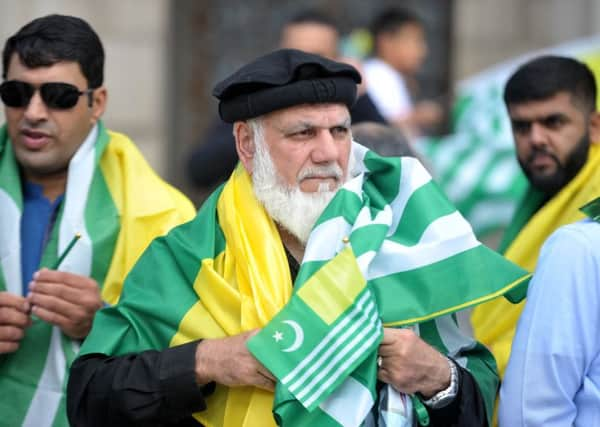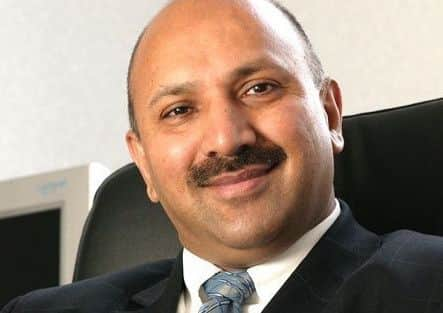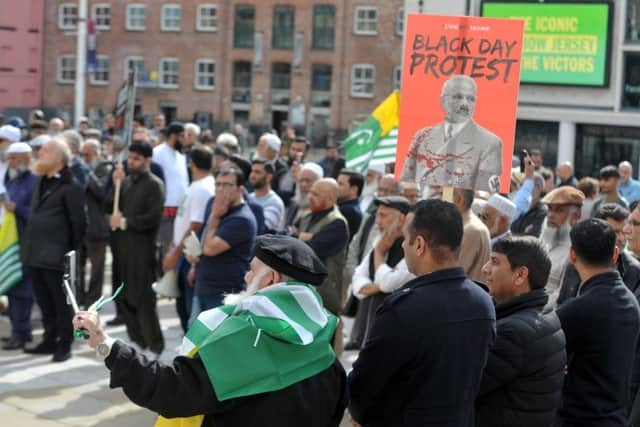Why Kashmir crisis cannot be ignored in Britain as tensions between India and Pakistan rise – Dr Mohammed Ali


But on the streets of some British cities, relations between the communities which make up our largest ethnic minority grouping – Asian and Asian British – are anything but quiet. The unease between UK citizens of Pakistani and Indian origin has grown significantly since the Indian government’s unprecedented move to revoke Indian-administered Kashmir’s autonomous status and place the region in lockdown.
Advertisement
Hide AdAdvertisement
Hide AdSubsequent reports of human rights abuses, a fierce curfew, the cutting-off of communications, torture, beatings, rapes and illegal arrests and incarcerations of political leaders have brought thousands of British citizens out on the streets – including in parts of Yorkshire – in protest. There have been calls for a boycott of Indian goods in some Pakistani-dominated communities and even a campaign to urge people not to watch Bollywood movies. And, sadly, in some isolated incidents, fighting has broken out between Pakistani and Indian communities.


The root of the discord goes back to the 1947 partition of India by the British government. The new nations of Pakistan and India went to war over the then independent territory of Kashmir, which had a large Muslim majority. It took mediation by the United Nations for the sides to agree that Kashmir’s future could be resolved at a later date by asking the people to decide through a referendum.
Advertisement
Hide AdAdvertisement
Hide AdThe region was given a special status and autonomy within the Indian union with its own flag and president under Article 370 of the constitution. In the subsequent 70 years, both countries have failed to honour the promise of a referendum, despite pressure from the UN, and India has sought to weaken Kashmir’s autonomy by diluting the Article’s legal effect.


Despite this, the outrageous move by India’s Prime Minister, Narendra Modi, to revoke Article 370 and remove Indian Kashmir’s special status, came as a huge shock to the population as well as governments across the world.
In one fell swoop, Modi has unilaterally changed the lives and futures of an entire people and, effectively, imposed a police state, without any consultation (even with his own government) and, according to many experts, any legal right to do so.
It’s hardly surprising then that UK citizens who originate from Kashmir are deeply concerned and angered both by the power grab, and the severe crackdown on those in the state who have tried to oppose it. There are more than 1.1 million people of Pakistani origin resident in the UK, most of them from the Pakistan-controlled areas of Kashmir, and 1.4 million of Indian origin.
Advertisement
Hide AdAdvertisement
Hide AdThe status of the region has always been hotly contested and it has always been a sensitive issue for both communities here. While scenes of horrific violence – afflicted by both the security forces and racist activists – proliferate on social media, many UK Pakistani communities are protesting weekly but, apparently, in a vacuum. With Brexit dominating the headlines and a real lack of decisive action by Western governments to challenge the events in Kashmir, they feel no-one is listening.
The UNHCR is debating the issues with High Commissioner Michelle Bachelet Jeria expressing “deep concern” over the Indian government’s actions and calling for an easing of the lockdown in Kashmir, but it seems a feeble response.
The crisis is also causing concern among other religious communities, both in the UK and India, who fear that Modi may be moving towards making India a Hindu-only state. The charity Open Doors told the Church Times that Christian communities are already experiencing severe pressures and “no minority in India can expect any level of special protection”.
Indian and Pakistani communities in the UK have always enjoyed a good relationship and it would be a tragedy if events 4,000 miles away were to damage that.
Advertisement
Hide AdAdvertisement
Hide AdBut if the conflict in Kashmir is not resolved and some sanity and humanity brought to bear on the atrocities currently taking place, there is a real danger that Brexit could find itself being pushed out of the headlines for all the wrong reasons.
Dr Mohammed Ali OBE is chief executive of the Bradford-based QED Foundation.